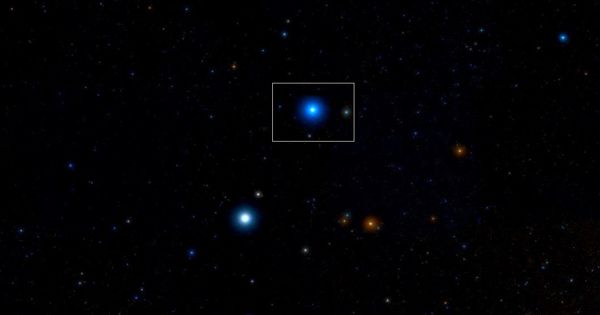According to a new filing with the FCC, Firefly Aerospace’s roller-coaster journey might soon bring the rocket startup public via a merger with a special purpose acquisition company. After its largest stakeholder, Ukrainian Max Polyakov was compelled to sell his shares due to national security concerns, aerospace private equity company AE Industrial Partners (AEI) announced last month that it had achieved a deal to purchase a “substantial investment” in Firefly. The deal’s additional details, including the use of a special purpose acquisition vehicle, were revealed in a recent FCC filing.
The acquisition involved “the majority of Firefly Aerospace’s equity” and was made by “special purpose acquisition vehicles controlled by AE Industrial Partners,” according to the new FCC filing, which relates to a proposed launch of Firefly’s second Alpha rocket from Vandenberg Air Force Base in California this spring. For AEI, such a move would not be unprecedented. Deep Space Systems was purchased by a private equity group specializing in aerospace, military, and power generation in 2020, and then joined with a previously acquired business, Adcole Space, to establish the space infrastructure corporation Redwire. Last September, AEI used a SPAC merger to take Redwire public.
To TechCrunch, AEI declined to comment on the filing. Tom Markusic, the CEO of Firefly, has previously shown interest in taking the firm public. Markusic told CNBC in November that a public offering may happen as early as 2022. Requests for comment were not immediately returned by Firefly, Noosphere, or Polyakov. Since Markusic, a former SpaceX, Blue Origin, and Virgin Galactic employee, started Firefly in 2014, the company has faced several hurdles. Firefly began developing the Alpha rocket for use as an air-launched rocket using Paul Allen’s Stratolaunch system in its initial iteration. However, the firm ran out of money in 2016, before releasing anything, due to a trade secret litigation filed by Virgin Galactic, rising costs, and the resignation of a significant investor.
Following that, the firm engaged in a number of moves, including a lightning asset sale and a brief Chapter 7 bankruptcy, both of which are currently being litigated by the company’s early investors. As a result, Polyakov’s investment firm, Noosphere Venture Partners, acquired ownership of a new version of Firefly in 2017, including its intellectual property and many of its engineers. The business went on to have a lot of commercial success, including many satellite launch orders and a $93 million NASA contract for the Blue Ghost lunar lander. In May 2021, Firefly raised $75 million in a Series An investment.
At the same time, Noosphere sold around $100 million of its Firefly holdings to Series an investors, bringing its overall investment in the company down to less than 50%. The remaining stake in Noosphere would be worth roughly $500 million. Alpha’s first launch in September failed to reach orbit after one of the rocket’s engines failed two and a half minutes into the mission. When Bloomberg reported that Polyakov had agreed to sell Noosphere’s investment in Firefly, it was in the middle of securing a launch license for its second attempt. His decision was apparently spurred by worries raised by the Committee on Foreign Investment in the United States, or CFIUS, regarding the likelihood of Firefly’s technology being exported to Ukraine, Russia, or other countries.
Polyakov turned to Facebook in February to accuse CFIUS, the US Air Force, and other US agencies of betraying him, and to announce that he was “selling” his Firefly interest to Markusic for $1. In reality, AE Industrial Partners was eventually involved in the purchase, which was revealed late last month. It was also valued at least $101 million since it sparked a regulatory examination at that level. The purchase is described in further detail in a recent FCC filing. AEI made a $75 million direct equity investment in Firefly Aerospace in a Series B preferred equity deal, in addition to purchasing Noosphere’s full share.
According to AEI, the company would “hold over 50% of Firefly Aerospace’s stock and voting interest percentage and will have the authority to designate a majority of Firefly Aerospace’s Board of Directors” as a result of the merger. In 2020 and 2021, space SPACs were market darlings, with stocks like Virgin Galactic and Rocket Lab skyrocketing.
However, only AST Space Mobile (which is developing a space-based cellular network) is trading above its average launch price of $10, and only by cents. The stock of AEI, Redwire, is presently trading at less than half of its 52-week high. The date of Firefly’s SPAC might be determined by when the company can demonstrate its capacity to reach orbit, which is currently up in the air. While the FCC granted Firefly’s application to transfer the communications permission for its second Alpha flight last week, the FAA has yet to award the business with a launch license.
















